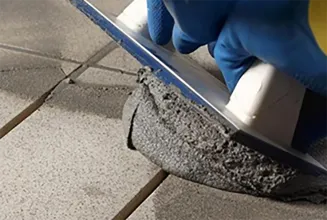
Oct . 12, 2024 20:52 Back to list
hpmc solubility in cold water
HPMC Solubility in Cold Water An Overview
Hydroxypropyl methylcellulose (HPMC) is a widely used cellulose ether known for its versatility and applications in various fields, including pharmaceuticals, food, construction, and cosmetics. A significant characteristic of HPMC is its solubility in cold water, which plays a crucial role in its functionality and performance in these applications. This article explores the solubility of HPMC in cold water, the factors affecting this solubility, and its implications in different industries.
Understanding HPMC
HPMC is a semi-synthetic polymer derived from cellulose, a natural polymer found in plant cell walls. The chemical modification of cellulose through hydroxypropyl and methyl groups enhances its solubility in water and its compatibility with various substances. Unlike many polymers, HPMC does not require heating to dissolve in cold water, making it an attractive choice for applications where heat-sensitive ingredients are present.
Solubility Characteristics
HPMC exhibits unique solubility properties that make it particularly suited for cold water applications. It can form a clear, viscous solution when added to cold water, depending on its viscosity grade, concentration, and water temperature. The solubility of HPMC is influenced by several factors, including
1. Molecular Weight HPMC is available in various molecular weight grades, ranging from low to high viscosity. Generally, lower molecular weight HPMC dissolves more readily in cold water, while higher molecular weight grades may take longer to dissolve and require higher concentrations for optimal viscosity.
2. Degree of Substitution The degree of substitution (DS) refers to the average number of hydroxypropyl or methyl groups attached per glucose unit in the cellulose chain. A higher DS typically enhances water solubility and thickening properties, which can be advantageous in many formulations.
3. Concentration The concentration of HPMC in the solution significantly affects its viscosity. At lower concentrations, HPMC may dissolve quickly and produce a relatively low-viscosity solution. However, as concentration increases, the viscosity rises, which can lead to gel-like characteristics if the concentration is too high.
hpmc solubility in cold water

4. Temperature While HPMC is known for its ability to dissolve in cold water, temperature may still play a role in the rate of dissolution and final viscosity achieved. Higher temperatures can accelerate the dissolution process, but the benefits of using cold water for heat-sensitive formulations remain significant.
Applications of HPMC in Cold Water Solutions
The ability of HPMC to dissolve in cold water and form stable solutions has broad implications in several industries
1. Pharmaceuticals In drug formulations, HPMC serves as a binder, thickening agent, and controlled-release matrix. Its solubility in cold water allows for easier preparation of suspensions and gels, leading to improved patient compliance and drug delivery.
2. Food Industry HPMC is utilized as a food additive to improve texture, moisture retention, and overall product stability. It is commonly found in gluten-free products, as it helps mimic the attributes of gluten, making it easier to create palatable and stable food items.
3. Construction In construction, HPMC is added to cement-based products like tile adhesives and plaster to improve workability, adhesion, and water retention. The ability to mix HPMC into a cold-water solution allows for ease of application and enhanced performance during curing.
4. Cosmetics In cosmetic formulations, HPMC acts as a thickening agent and film-former. Its solubility in cold water allows for the production of stable, viscous products, such as creams and lotions, without the need for heating, preserving heat-sensitive active ingredients.
Conclusion
The solubility of Hydroxypropyl Methylcellulose in cold water is a pivotal characteristic that enhances its utility across multiple sectors. Its ability to form stable, viscous solutions without the need for heat not only supports the formulation of a wide array of products but also caters to specific requirements such as the preservation of heat-sensitive ingredients. Understanding the factors that influence HPMC's solubility can help formulators optimize their formulations and leverage the advantages it provides in various applications. As industries continue to evolve, the importance of HPMC and its solubility in cold water will remain a cornerstone of effective product development.
-
Versatile Hpmc Uses in Different Industries
NewsJun.19,2025
-
Redispersible Powder's Role in Enhancing Durability of Construction Products
NewsJun.19,2025
-
Hydroxyethyl Cellulose Applications Driving Green Industrial Processes
NewsJun.19,2025
-
Exploring Different Redispersible Polymer Powder
NewsJun.19,2025
-
Choosing the Right Mortar Bonding Agent
NewsJun.19,2025
-
Applications and Significance of China Hpmc in Modern Industries
NewsJun.19,2025







